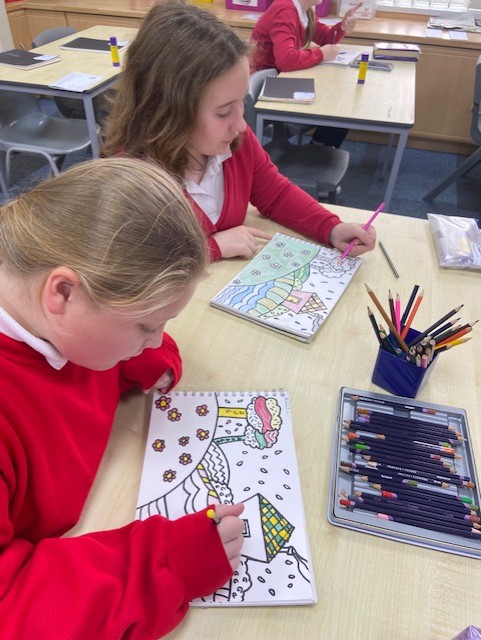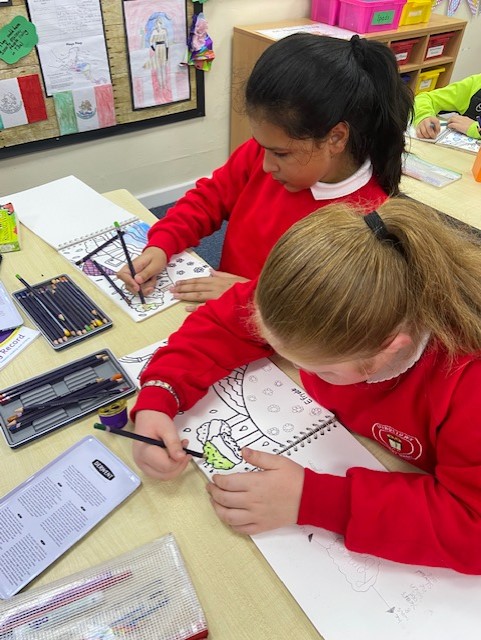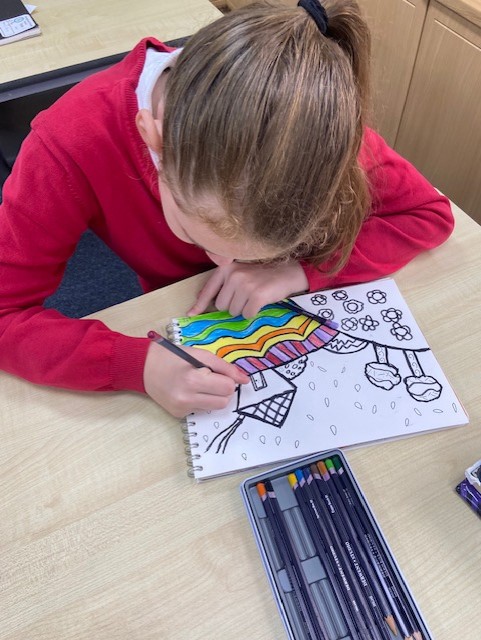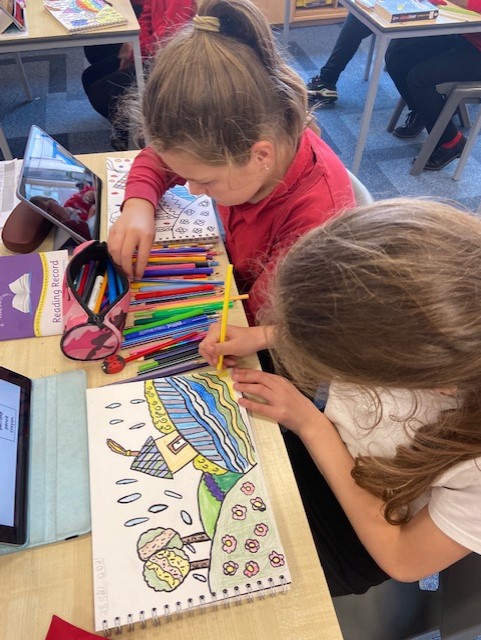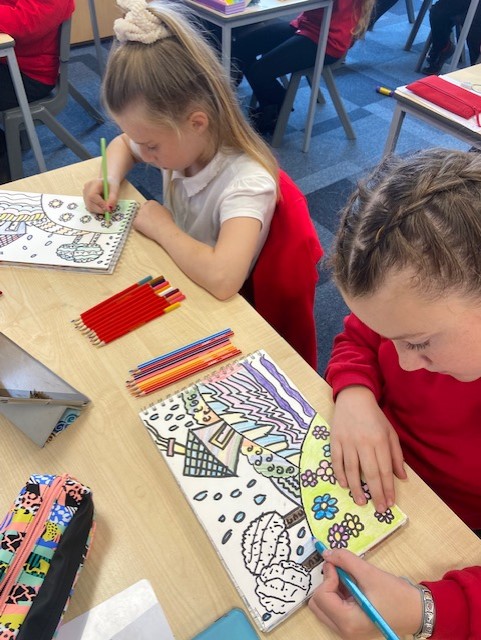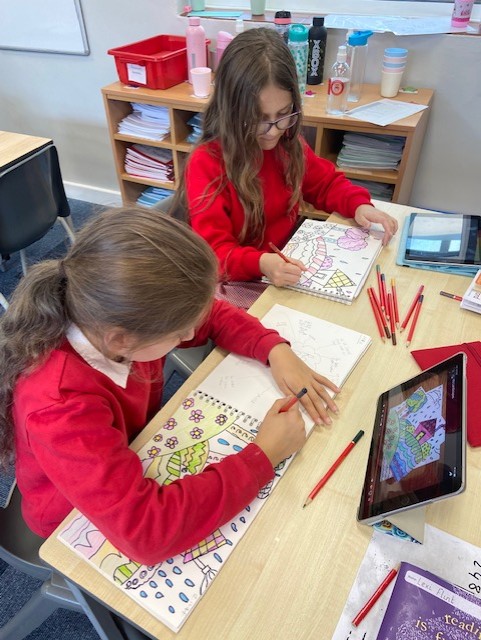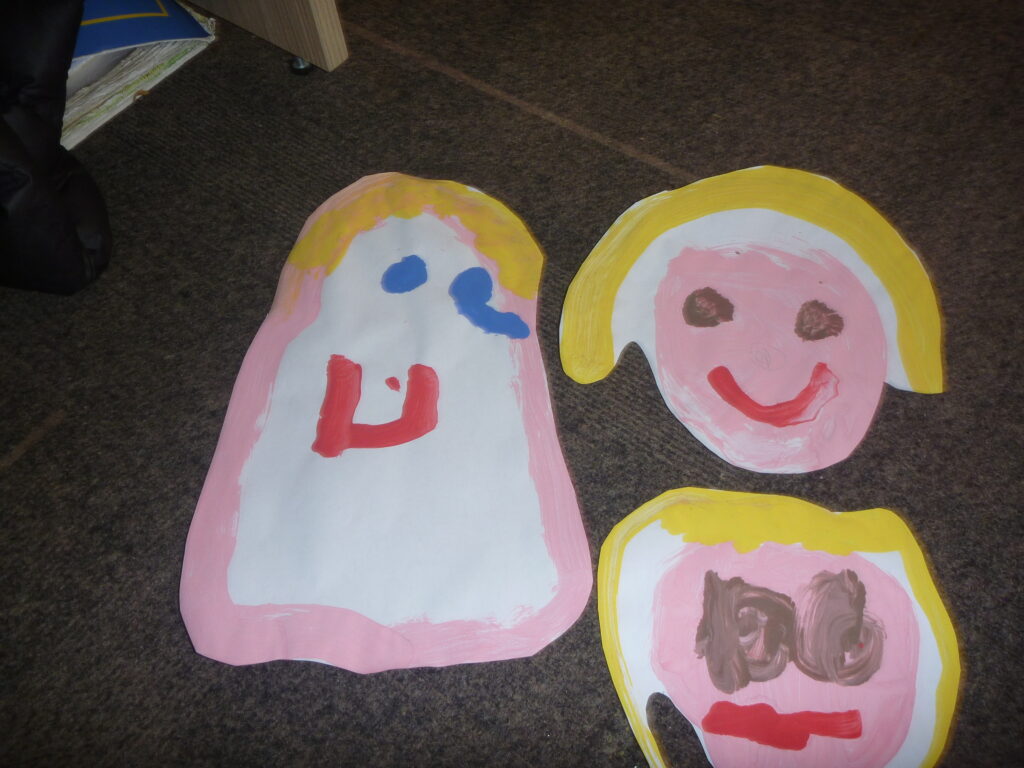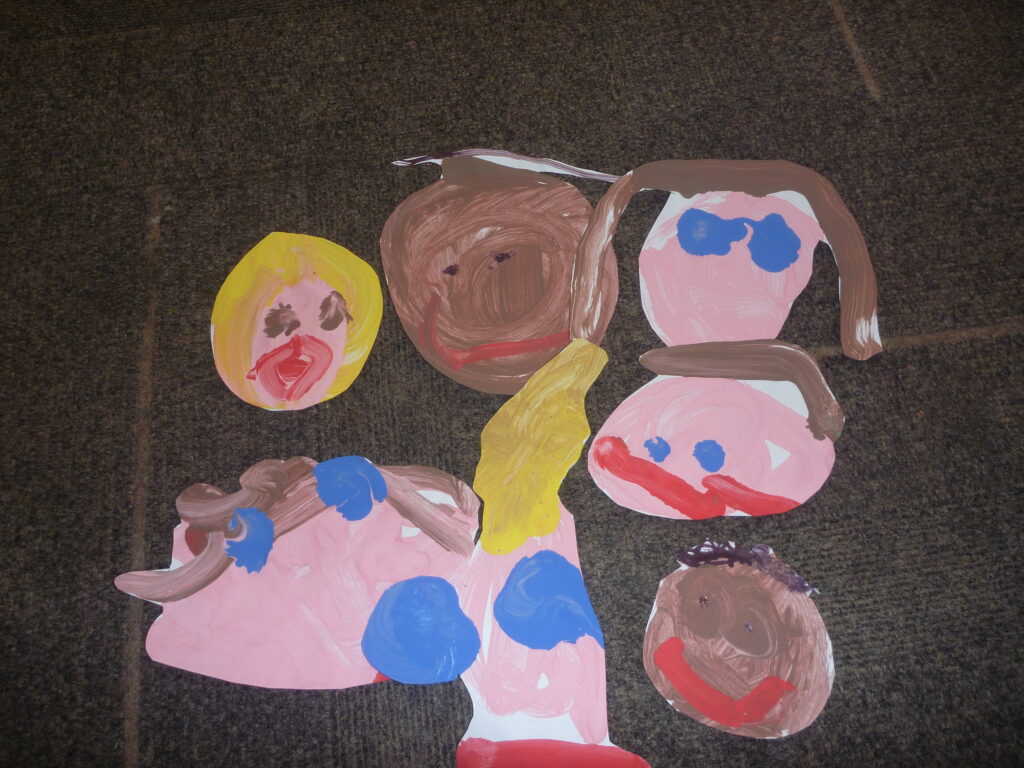At Grangetown Primary School, we are committed to providing all children with the opportunities to engage and succeed in the Arts. We are passionate about developing and promoting the Arts through an enjoyable and creative curriculum.
We aim to provide high-quality art and design education that engages, inspires and challenges pupils, equipping them with the knowledge and skills to experiment, express themselves through their own works of art, craft and design.
As a school, we have carefully chosen a diverse range of artists to study in detail. The specific artists we have chosen to study vary from the past to present and from different parts of the World to those who grew up on our doorstep! This cultural exposure to a wide variety of art and artists will enable pupils to progress in such a way, that allows for the development of critical thinking and a rigorous understanding of art and design. It will also bring an awareness of how art and design both reflects and shapes our history.
Intent
We have designed and created an Art Curriculum specifically tailored to meet the needs of our children. We have chosen four themes that underpin our curriculum which are:
- Inspiration
- Form
- Tone
- Expression
Form and Tone encompasses the knowledge and skills the children need to become accomplished artists. Inspiration and Expression allows children to gather new ideas and experiences and explore new mediums with opportunities to develop a sense of self.
By the end of each key stage, pupils are expected to know, apply and understand the matters, skills and processes specified in the relevant programmes of study.
Subject Content:
KS1:
Pupils are taught:
- to use a range of materials creatively to design and make products
- to use drawing, painting and sculpture to develop and share their ideas, experiences and imagination
- to develop a wide range of art and design techniques in using colour, pattern, texture, line, shape, form and space
- about the work of a range of artists, craft makers and designers, describing the
- differences and similarities between different practices and disciplines, and making links to their own work.
KS2:
Pupils are taught to develop their techniques, including their control and their use of materials, with creativity, experimentation and an increasing awareness of different kinds of art, craft and design.
Pupils are taught:
- to use/create sketch books to record their observations and use them to review and revisit ideas
- to improve their mastery of art and design techniques, including drawing, painting and sculpture with a range of materials [e.g. pencil, charcoal, paint, clay]
- about great artists, architects and designers in history
Implementation
At Grangetown Primary School, our newly designed and implemented Art curriculum has been specifically created to meet the needs of our pupils ensuring our curriculum intentions are met. We do this through:
- Following a whole school curriculum that covers a range of techniques, artists and genres: drawing, painting, collage, printmaking, textiles and 3D (sculpture). While developing a range of knowledge and skills that can form a foundation for our children to be inspired and also express themselves.
- Termly units: Art is taught through a different topic every term.
- Lessons– Art is taught through continuous provision in EYFS and KS1. Sketch books are introduced in Year 1 and follow the child throughout their primary years. Art is taught fortnightly for a full afternoon in KS2.
- Whole class /mixed-ability lessons– The subject content, skills and techniques taught, are made accessible to all children; with special provision made for those children who may need it. Children who access the Arc Specialist provision are included in Art lessons in their academic year groups.
- Good quality lessons– Teachers present good quality lessons which incorporate the teaching of drawing, painting, collage, printmaking, textiles and 3D (Sculpture).
- Cross Curricular Links –To ensure that the pupils get the benefit of a full and balanced curriculum, links are made (where appropriate) with other curriculum areas.
- Critical thinking – Is encouraged when discussing art, works of art and artists through the use of both closed and open-ended questions. Pupils are also encouraged to use and respond to similar questions in response to their own work.
- Broad subject matter: Involves the study of a range of female born and male born artists, local and international artists, culturally and ethnically diverse artists, designers and craftspeople both past and present.
- Fostering an understanding – Is achieved through the understanding that art is made by all sorts of people, in many different ways, for many different reasons.
- Gallery visits– Each year group in both Key Stages are encouraged to either visit a gallery OR arrange for gallery experiences/workshops in school.
- Assessment (teacher): Is to be completed at the end of each unit of work, using the school’s assessment sheet.
- Assessment (self/peer)Is used as a vital tool for establishing the progress the children are making and for identifying the next steps in learning.
Impact
The impact of our Art curriculum is that all children, in our school, are able to;
- produce creative work, exploring their ideas and recording their experiences
- become proficient in drawing, painting, sculpture and other art, craft and design techniques
- evaluate and analyse creative works using the language of art, craft and design
- know about great artists, craft makers and designers, and understand the historical and cultural development of their art forms.
- Become familiar with current local artists and their subjects and learn more about their background and influences so they can relate to their artwork more easily.
- By the end of each key stage, pupils are expected to know, apply and understand the matters, skills and processes specified in the relevant programme of study
Take a look at what we get up to in our Art lessons…
